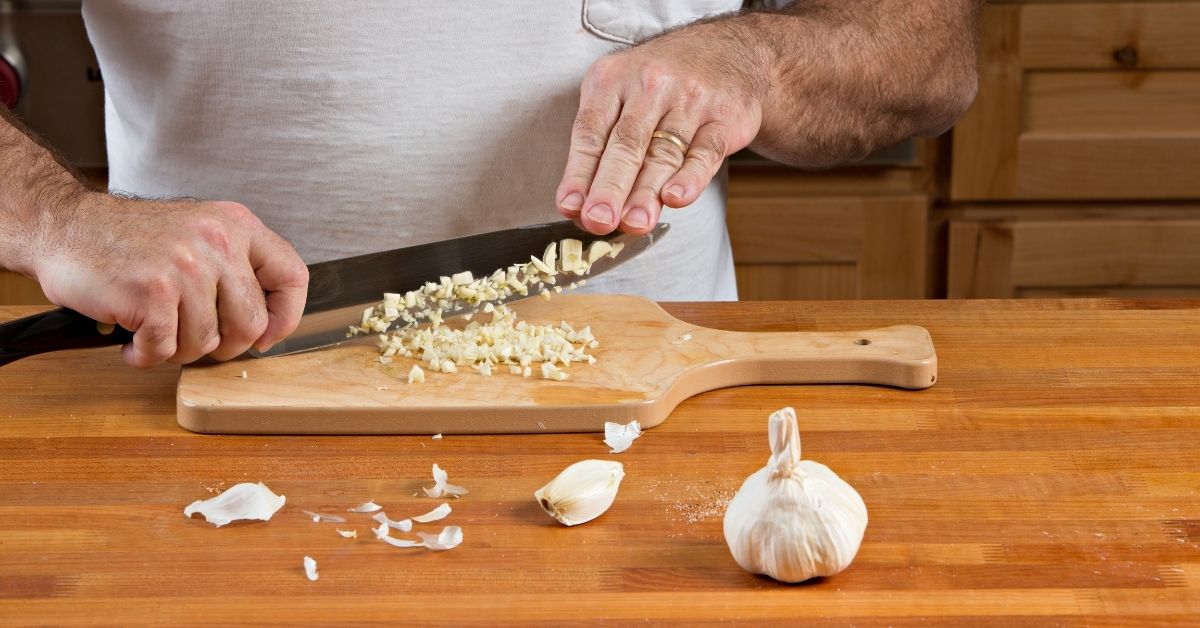Yes, minced garlic must be refrigerated to prevent botulism and maintain freshness.
Does Minced Garlic Need To Be Refrigerated?
Yes, minced garlic needs refrigeration to maintain its freshness, flavor, and most importantly, to prevent the risk of botulism. Botulism is a potentially fatal foodborne illness, and improperly stored garlic (especially in oil) creates an environment where botulism can develop. Let’s dive deeper into why and how to store your minced garlic properly.
Understanding Garlic
Garlic is a low-acid food, meaning it’s not naturally equipped to fight off harmful bacteria. When garlic is chopped or minced, its protective cell walls are broken. This, combined with the low acidity, creates a favorable environment for dangerous bacteria like Clostridium botulinum to thrive.
Storing Minced Garlic: Your Options
Here’s a breakdown of how you can store your minced garlic safely:
1. Refrigeration
- Freshly Minced Garlic: If you’ve minced garlic yourself, store it in an airtight container in the refrigerator. It’ll last for about a week, so try to use it up within that time.
- Store-Bought Minced Garlic: For those convenient jars from the supermarket, they typically come with instructions. Always refrigerate them immediately after opening and follow the use-by date.
2. Freezing
Freezing extends the lifespan of minced garlic considerably. Here’s how:
- Spread the minced garlic in a thin layer on a baking sheet lined with parchment paper.
- Freeze until solid (a few hours).
- Transfer the frozen garlic pieces to a freezer-safe container or bag.
- Frozen garlic will easily last for several months.
3. Storing in Oil
While you’ll find tips suggesting storing minced garlic submerged in oil, it’s CRUCIAL to understand the risks. Storing garlic in oil at room temperature creates an ideal breeding ground for botulism. This is why you MUST refrigerate garlic-in-oil mixtures IMMEDIATELY and use them within a week at most.
Table 1: Garlic Storage Quick Guide
| Storage Method | Freshly Minced Garlic | Store-Bought Minced Garlic |
| Refrigeration | Up to 1 week | Follow use-by date (typically a few weeks) |
| Freezing | Up to several months | Up to several months |
| In Oil (Refrigerated) | Use within 1 week | Use within 1 week |
Helpful Tips
- Label it: Don’t forget to label your homemade minced garlic containers with the date to keep track of freshness.
- Clean utensils: Always use clean spoons or utensils when scooping out minced garlic to prevent contamination.
- Look for signs: Discard any garlic that looks moldy, discolored, or has an off odor.
So, Does Minced Garlic Need To Be Refrigerated?
Absolutely yes! Keeping your minced garlic chilled is the only way to ensure its safety and avoid any potential health risks.
How to Tell if Minced Garlic Has Gone Bad
Even with proper storage, minced garlic does have a shelf life. Here’s how to know if it’s past its prime:
- Discoloration: Look for any unusual discoloration. Fresh minced garlic should be a creamy off-white. Brownish or yellowish hues could indicate spoilage.
- Off Odor: If it lost its garlicky aroma or smells sour or fermented, it’s time to toss it.
- Mold Growth: Any visible signs of mold mean you should definitely discard the garlic.
- Texture Changes: If the garlic has become slimy or mushy, that’s a sign it’s gone bad.
Is It Safe to Use Sprouted Garlic?
While sprouted garlic is still technically safe to eat, it’s often bitter and less flavorful than fresh bulbs. However, the sprouts themselves are perfectly fine to consume and add a mild garlicky punch to dishes.
Table 2: Signs of Spoiled Minced Garlic
| Sign of Spoilage | Description |
| Discoloration | Brownish, yellowish, or unusual colors |
| Off Odor | Sour, fermented, or unnatural smell |
| Mold Growth | Visible mold spots |
| Texture Change | Slimy or mushy |
The Benefits of Minced Garlic
Besides adding a burst of flavor to your dishes, garlic also offers some potential health benefits:
- Immune Support: Garlic contains compounds that may help boost the immune system.
- Potential for Lowering Blood Pressure: Some studies suggest a possible link between garlic consumption and reduced blood pressure.
- Antioxidant Properties: Garlic contains antioxidants that may help protect cells against damage.
Remember: More research is needed to confirm the full impact of garlic on overall health. Still, it’s undoubtedly a delicious and nutritious addition to your meals.
Delicious Ways to Use Minced Garlic
Minced garlic amps up the flavor of practically anything. Here are some ideas:
- Sauces & Marinades: Whisk minced garlic into your favorite pasta sauce, stir-fry sauce, or meat marinade.
- Salad Dressings: Add a zing of garlic to homemade salad dressings.
- Roasted Vegetables: Toss vegetables in olive oil, minced garlic, and herbs before roasting.
- Dips & Spreads: Minced garlic brings life to hummus, guacamole, or any creamy dip.
Table 3: Garlic in Global Cuisines
| Cuisine | Popular Garlic Dishes |
| Italian | Garlic bread, pasta sauces, pesto |
| Mediterranean | Aioli, skordalia, hummus |
| Asian | Stir-fries, curries, garlic noodles |
| Mexican | Guacamole, salsas, adobos |
Conclusion- Does Minced Garlic Need To Be Refrigerated?
So, does minced garlic need to be refrigerated? The answer is a resounding YES! Refrigeration is the safest way to preserve its freshness, flavor, and prevent harmful bacteria from growing. By understanding the risks and following proper storage methods, you can enjoy this versatile ingredient without worry.
